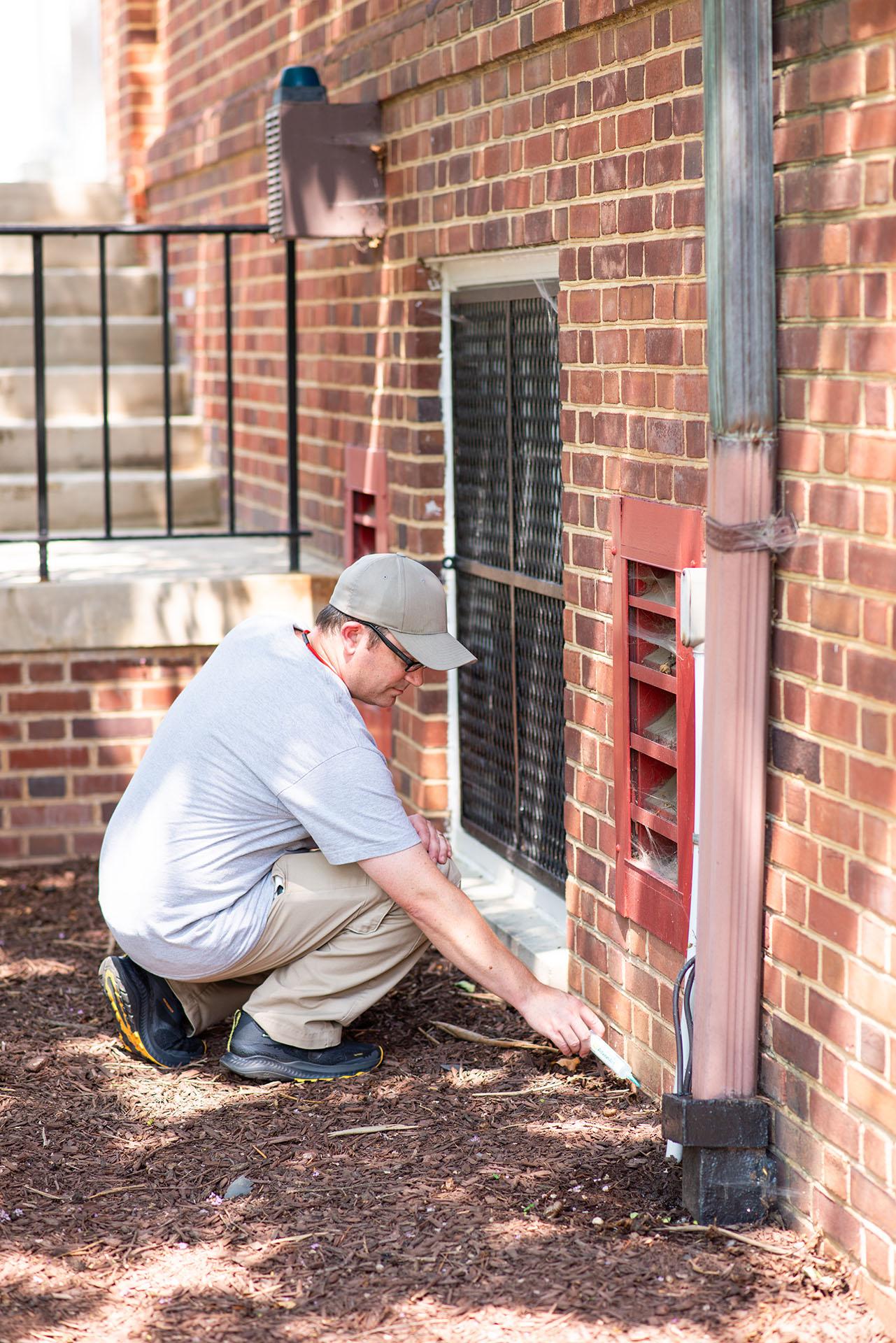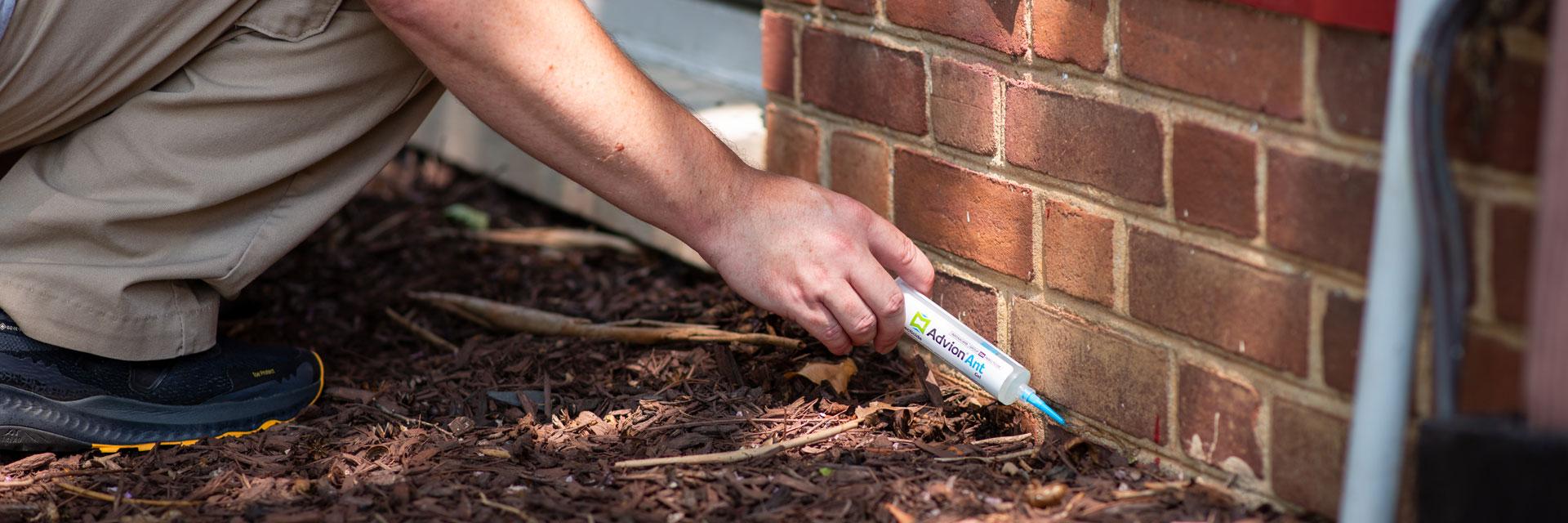Our Pest Control team uses an Integrated Pest Management (IPM) approach to keep our residential and recreational areas pest-free while minimizing harm to the environment, other organisms, and human health.
What is IPM?
IPM is a systematic approach to managing pests which focuses on long-term prevention or suppression with minimal impact on human health, the environment and non-target organisms. IPM incorporates all reasonable measures to prevent pest problems by properly identifying pests, monitoring population dynamics, and utilizing cultural, physical, biological or chemical pest population management methods to reduce pests to acceptable levels.
How we use IPM
Our staff regularly inspect our buildings inside and out, identifying and monitoring any pest issues. When an issue arises, we take immediate action. Our pest control process follows these steps:

- Inspection
- We inspect the problem area to identify the type of pest we're dealing with.
- Management
- Cultural: We focus on sanitation by keeping areas clean and clutter-free. This includes regular removal of garbage and recyclables, thorough vacuuming, and keeping sinks, toilets, showers, and floor drains spotless and fully functional.
- Physical: We seal cracks and crevices, ensure window screens are intact, and use a vacuum or net to trap pests.
- Biological: We use beneficial bacteria to reduce pest populations naturally. By employing them to clean drains, we reduce drain fly populations, and they also work to eliminate mosquito larvae in standing water.
- Chemical: As a last resort, we use pesticides, following label directions carefully. We prioritize baits whenever possible, as they minimize harm to non-target organisms, pets, and people. We'll use alternative formulations, when necessary, always ensuring compliance with regulations for safe and responsible pest control.
Certifications
Our staff are certified applicators with the Maryland Department of Agriculture (MDA). They are also certified through the Department of Natural Resources (DNR) to ensure the safe trapping, handling, and relocation of wildlife.
If you have any concerns or questions about our crawling, slithering, flying or furry neighbors here on campus, particularly if they are not where they are supposed to be, please contact us and we will be happy to help.

